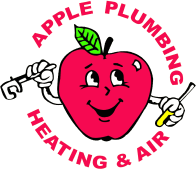If you have City Water, chances are you have a pressure reducing valve on your water main where it enters your house. What is a pressure reducing valve and why is it there?
A pressure reducing valve does exactly what its name indicates: It reduces the pressure in your plumbing system. Plumbing fixtures, faucets and appliances are designed to operate at a pressure between 25 psi and 80 psi. In fact, some manufacturer’s void any warranty if the pressure exceeds anywhere form 80-120 psi. In addition, local and national plumbing codes do not allow pressures greater than 80 psi. The ideal pressure in a home is 50-60 psi.
Excess pressure can have a variety of effects on your plumbing:
- Excessive wear and tear on faucets, fixtures and appliances.
- Banging or noisy water pipes when turning on or off water at a faucet
- Spitting from the water faucet aerator when water is turned on
- Shortened water heater life
- Leaking faucets
- Running toilets
- Reduced washing machine or dishwasher life due to leaks
- Septic drain field flooding and failure if your building is connected to a private septic system
- Increased sewer bill costs in communities who base their sewer charges on water usage metering.
- Increased hot water heating costs: if water pressure is unnecessarily high, the increased volume and rate of cold water flowing through a home water heater increases the operating cost of that appliance.
- Wasted water – running water at higher-than-needed pressure and flow wastes water in daily fixture use.
- Water heater tank explosions. THIS IS IMPORTANT: When water is heated, it expands. Because water is an incompressible fluid, when it expands the pressure in the system increases greatly. If there is no mechanism to absorb or relieve the increased pressure, the water heater can explode. Check it out: Mythbusters Water Heater Explosion. I’ll get into the mechanisms to prevent this in another blog.
So, how does a pressure reducing valve work? MAGIC. Seriously, here is a short video that explains how a gas regulator works and it is the same principal for water. If I find one for water, I’ll post it. Beware: this video is very dry-you might want to grab a cup of coffee first: How A Regulator Works
If you think you have excessive pressure, give us a call and we’ll stop by to check your pressure and make any necessary recommendations. No charge to check your pressure. We love this stuff!!
Same Day Emergency Service available! Call us at 410-840-8118 or fill in the form.





